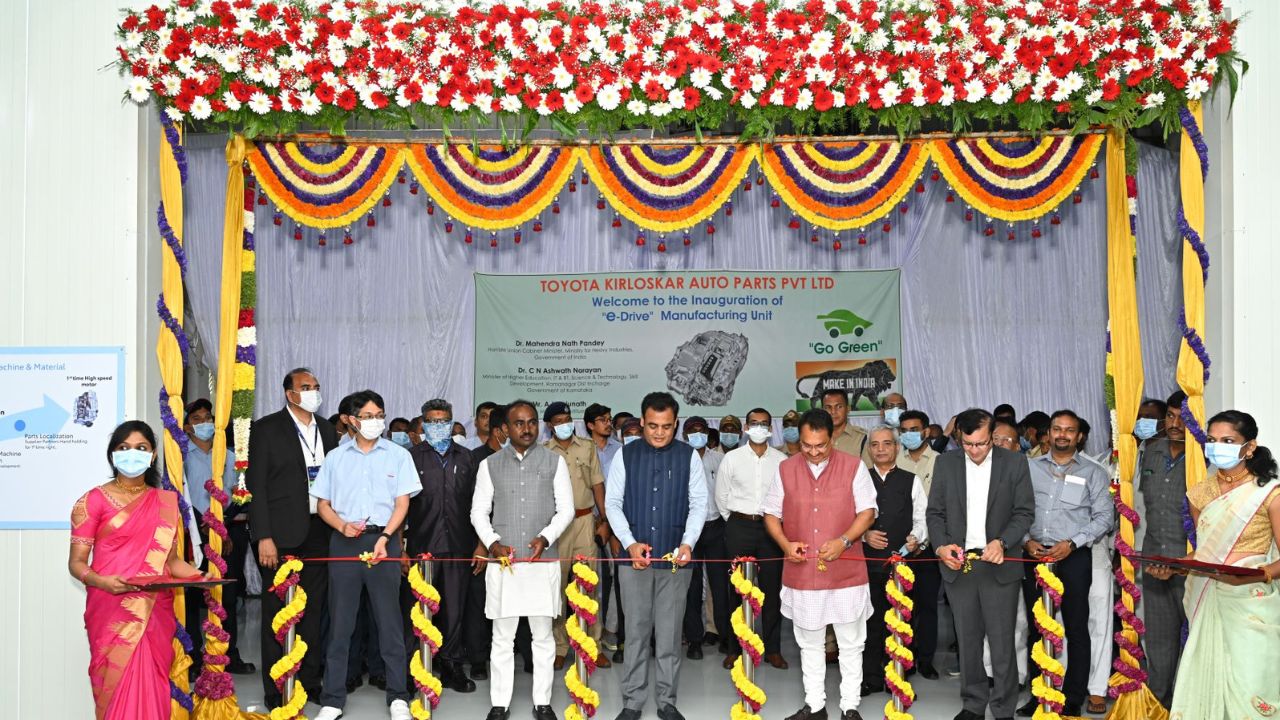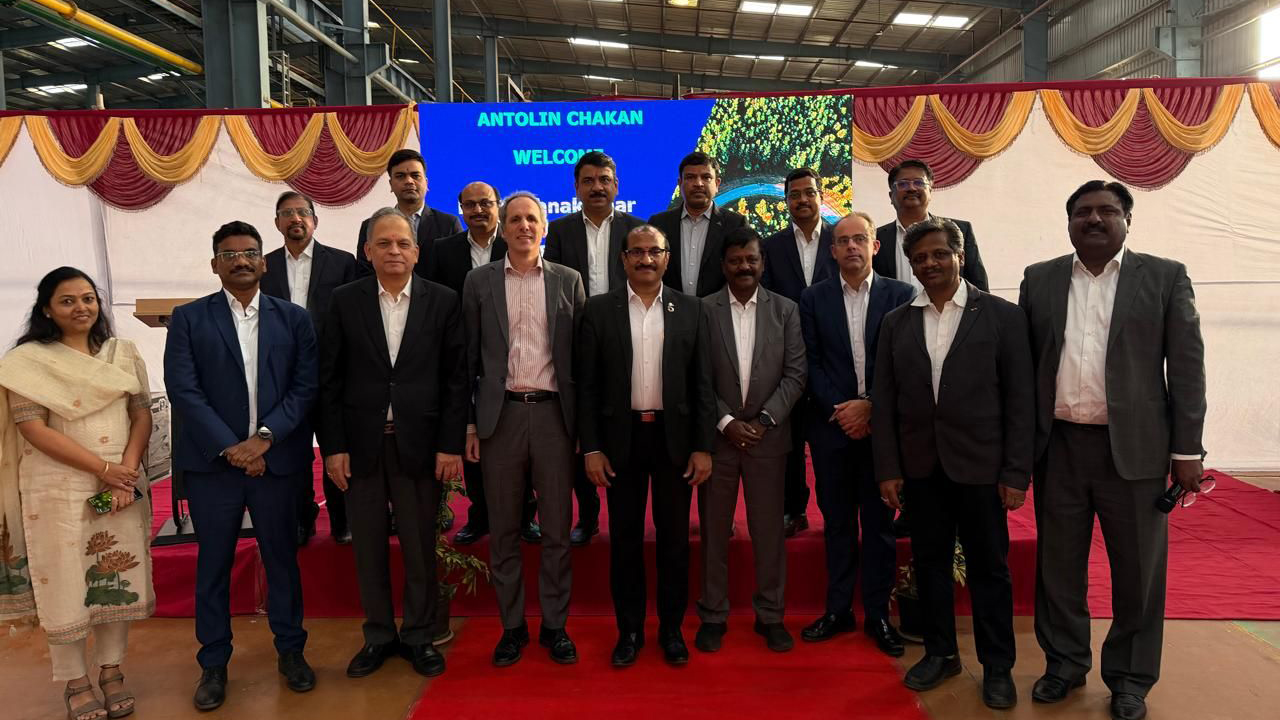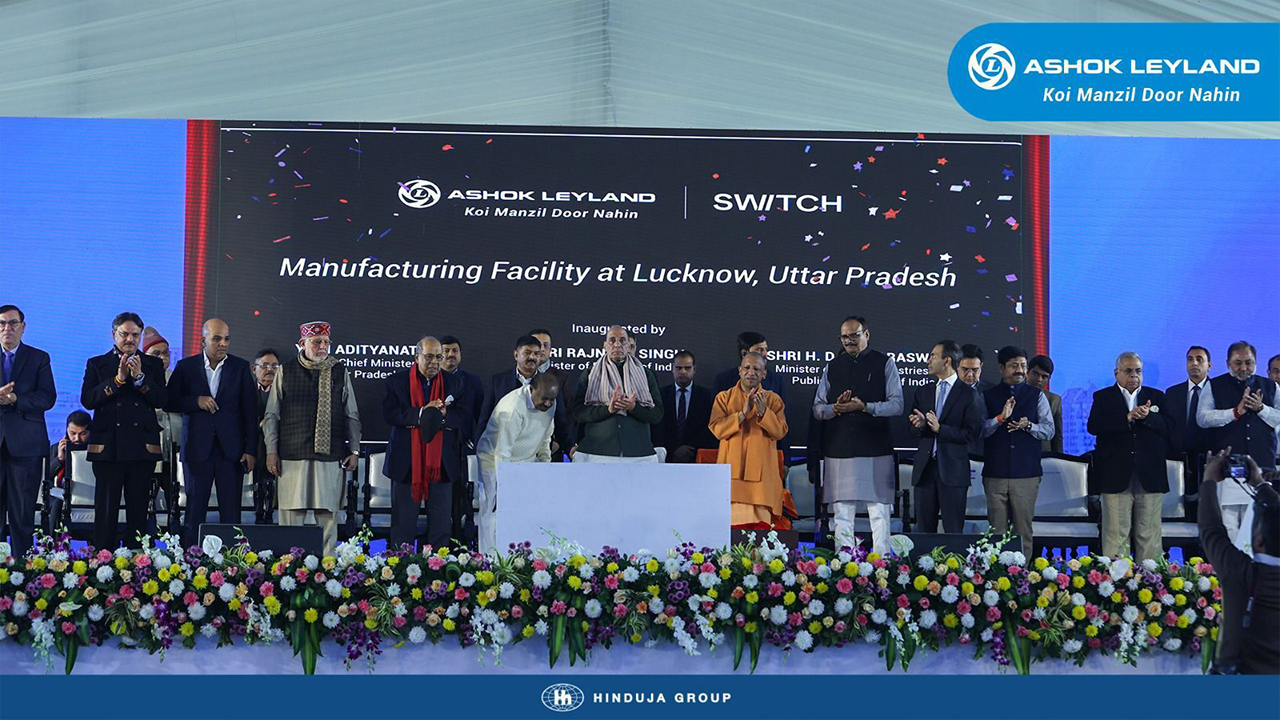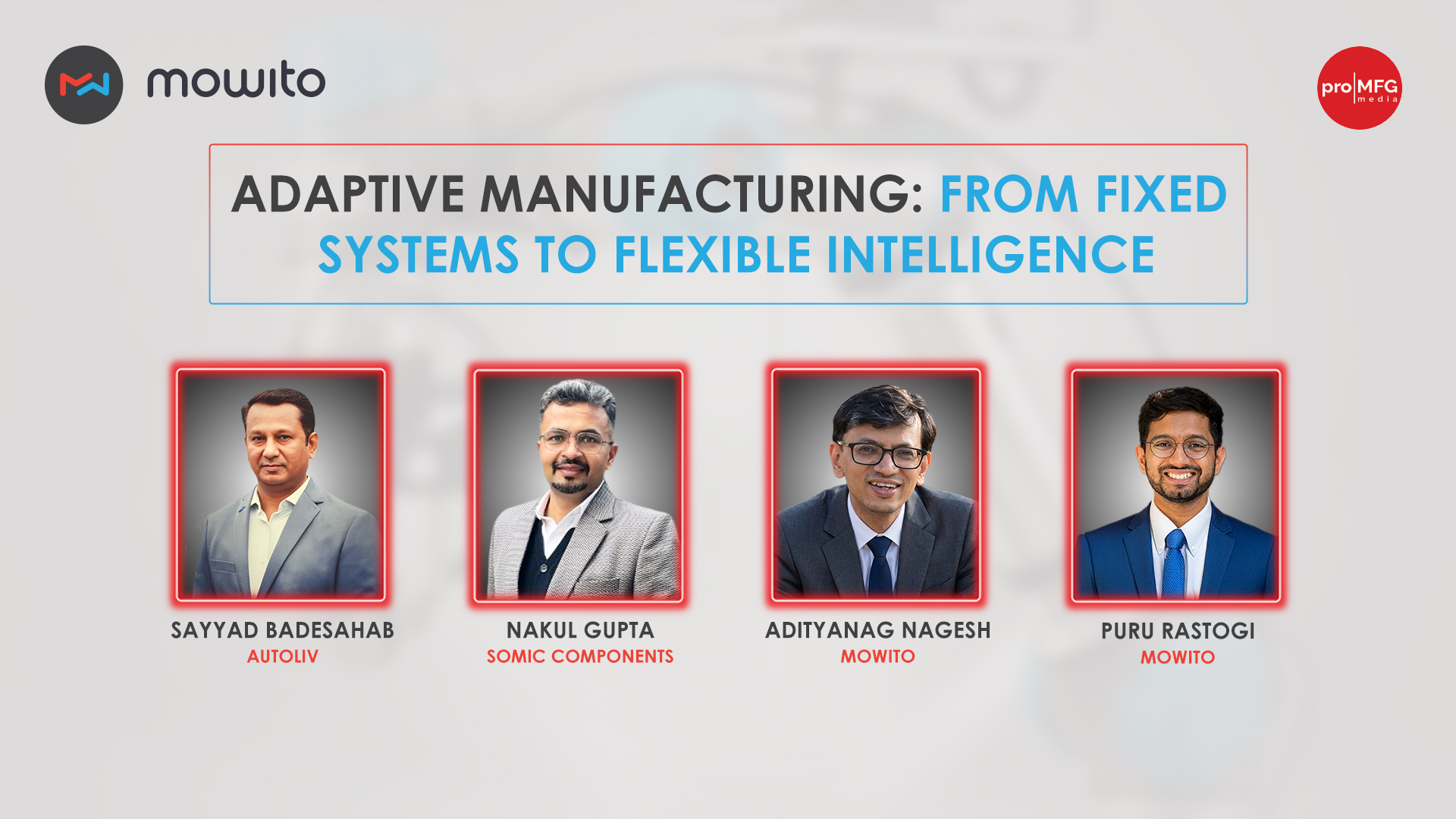Toyota’s bigger Efforts to Further Strengthen and Contribute to ‘Make in India’ & ‘Skill India’ Mission
#Toyota #E-Drive #ToyotaKirloskarAutoParts“With the recent MoU signing, our clear objectives are to usher large-scale investment to make deeper cuts in carbon emissions, higher employment generation, creating local manufacturing hub not only for domestic needs but also for global markets, local community development and advancement in innovation.” - Vikram S. Kirloskar, Vice Chairman, Toyota Kirloskar Motor

June 2022 : In its effort to strengthen the contribution to the country’s vision of achieving self-reliance through ‘Make in India’ and ‘Skill India’, Toyota in India, announced two major milestones.
While Toyota Kirloskar Motor (TKM) held the ground-breaking ceremony of Phase II of Toyota Technical Training Institute (TTTI) that involves major enhancement of skilling infrastructure with a view to skill a larger number of people in the advanced automotive space, Toyota Kirloskar Auto Parts (TKAP) announced the line-off of its new E-Drive (electrified component) manufacturing line being an integral part of the recently signed Memorandum of Understanding (MoU) with the Karnataka Government, towards the realization of ‘Net Zero Carbon Society’ in its true sense.
Both these Toyota projects were inaugurated by Dr. Mahendra Nath Pandey, Hon’ble Minister, Ministry of Heavy industries, Government of India; Dr. C. N. Ashwath Narayan, Hon’ble Minister of Higher Education, IT & BT, Science & Technology; Skill Development, Entrepreneurship & Livelihood Government of Karnataka; Mr. A. Manjunath - MLA Magadi Constituency, Government of Karnataka, Senior officials of Government of India and Government of Karnataka, in the presence of Vice Chairman - Mr. Vikram S. Kirloskar & Managing Director - Mr. Masakazu Yoshimura of Toyota Kirloskar Motor, Mr. K N Prasad, Managing Director - Toyota Kirloskar Auto Parts and other Toyota executives.
With TTTI, Toyota aims to bridge the skills gap and provide best training in technological advancements to the youth of Karnataka. TTTI is recognized by National Council of Vocational Training (NCVT), Japan-India Institute for Manufacturing (JIM), Automotive Skill Development Council (ASDC) and Directorate General of Training (DGT). The three-year residential training program focuses on holistic development by imparting deeper knowledge in automobiles, enriches their skills as craftsmen and body development by engaging in physical fitness activities (for e.g., sports). To develop their mind and attitude, experiential learning is provided through shramdaan, service in orphanages and underprivileged communities.
This initiative reflects our strong commitment, with focus on inclusivity and gender diversity, to provide greater opportunity to rural and meritorious youths to become industry-ready technicians with right skill sets of global standards and contribute to our country’s ‘Skill India’ vision.
Present at these occasions, Mr. Vikram S. Kirloskar, Vice Chairman, Toyota Kirloskar Motor said, “With the recent MoU signing, our clear objectives are to usher large-scale investment to make deeper cuts in carbon emissions, higher employment generation, creating local manufacturing hub not only for domestic needs but also for global markets, local community development and advancement in innovation. With these initiatives coming into effect, we are happy to be able to uphold our philosophy of “Leave No One Behind”.
On the localization aspect, as a part of the recent MoU of Rs. 4,800 crores signed by Toyota Group Companies (with Rs. 700 crores invested for TIEI) with the Government of Karnataka, the line-off of TKAP’s e-Drive manufacturing facility reflects company’s efforts in setting-up local manufacturing ecosystem towards green mobility targets, aligning with our country’s national objectives.
Toyota being pioneer in electrification, has so far, cumulatively sold over 20 million Electrified Vehicles (xEVs*) globally. In India too, TKM was among the first automakers to introduce SHEVs in the market. SHEVs, which have both a petrol engine and electric powertrain, are extremely environment friendly, while requiring no behavioral changes at the customer’s end. Hybrids can run 40% of the distance and 60% of the time as an electric vehicle with a petrol engine shut off, as proven in a study by iCAT, a Government testing agency. This gives hybrids tremendous fuel efficiency improvements of 35 - 50% and much lower carbon emissions.
NEWSLETTER
TRENDING ON PRO MFG
MORE FROM THE SECTION









